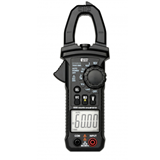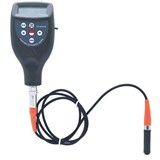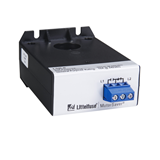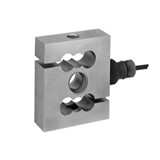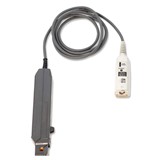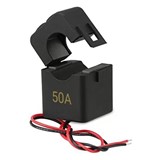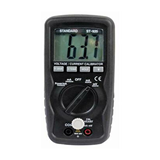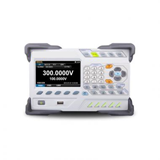The comment follows the tragic death of a 12-year-old boy in Perth’s southern suburbs last Friday. Unfortunately the boy contacted a live 240-volt connection on an appliance whose circuit was not protected by an RCD. The home was built about 20 years ago.
EnergySafety, the State’s electrical and gas industry technical and safety regulator, has been working to improve the safety of electricity users in the home by developing a plan for the retrofitting of RCDs -- also known as residual current devices or safety switches -- into older homes.
An electrical fatality in Erskine, near Mandurah, earlier this month could also have been avoided if a safety switch had been fitted to the circuit.
“Residential buildings built before 1990 do not have any RCDs installed unless the owner has arranged their installation as a family safety initiative,” director of energy safety, Albert Koenig, said.
“EnergySafety has run safety campaigns on TV, radio and the press, but it is believed that voluntary installation of RCDs has a low penetration rate of only about 20 per cent of the relevant housing stock,” Koenig said.
Residual current devices detect minute changes in the electrical current balance of a circuit, so that if say a person touches a live part of an appliance or cable accidentally, the RCD trips the circuit very rapidly on detecting that some of the current has ”leaked” via a person’s body to earth. Hence some years ago RCDs were referred to as “earth leakage circuit breakers”.
EnergySafety’s announcement comes days after the Archicentre revealed that more than one in five WA homes have faulty wiring.
A survey by the Archicentre, the advisory service of the Australian Institute of Architects, revealed high levels of faulty wiring in older Perth suburbs.
Since 1990 all new residences have been required to have at least one RCD to protect the power circuits. Since 2000 this was expanded in WA to require at least two RCDs for each domestic installation, to protect against electric shock from faulty appliances and lighting fittings, as well as from damaged wiring associated with power point and lighting circuits.
This WA requirement was adopted nationally in late 2007 as the most appropriate level of protection. Unfortunately, much older housing remains without such protection, even though it would be of greatest benefit for pre-1980 housing that typically has ageing wiring installations.
The present cost of two single phase RCDs is approximately $200. The total cost of installing the two units depends on the individual circumstances of a particular property but would not be expected to exceed $600. A typical 4 + 2 residence is likely to cost about $400 - $500.
EnergySafety has proposed that the regulations under the Electricity Act be amended to require the installation of at least two RCDs in homes, where not already fitted, before they are sold or leased.
In the case of owner occupied dwellings the RCDs will have to be installed before the transfer of the property title – that is, before settlement on the sale of the property. For rented dwellings the RCDs will have to be installed before a new tenant occupies the property, before the property title is transferred if being sold, or otherwise within two years of gazettal of the amendment regulations.
Koenig said it was expected that through this programme more than 90 per cent of the housing stock in the State would be equipped with at least two RCDs within 15 years. Some other States/Territories have adopted a similar program or are proposing to do so.
“Both the real estate industry and the electrical industry were consulted during late 2008 and no objections to the proposal were raised.
“It is expected that the proposal will be ready for the Minister for Commerce’s formal approval as soon as possible, after which it can be implemented before the end of 2009. Implementation involves gazettal of the new regulations dealing with the RCD retro-fitting requirements.
“The requirements are proposed to come into effect three months after gazettal of the new regulations.”
- Suppliers
- New to IndustrySearch? Book a Demo
- Advertise with us
- Login
- Email Marketing
- Buyers
- Get Quotes
- Articles & Ideas
- Login
- Subscribe to newsletter
- My Details
- Get Quotes
- Automation & Control
- Automotive Workshop Equipment
- Commercial Cleaning & Laundry Supplies
- Construction Equipment & Heavy Machinery
- Conveyor Systems & Components
- Electrical & Power Generation Equipment
- Electronic Components
- Farming & Agriculture
- Food & Beverage Processing
- Forklifts & Forklift Attachments
- Hydraulic & Pneumatic Equipment
- Industrial Materials, Tools & Components
- Industrial Pumps
- IT Hardware & Industrial Computing
- IT Software & Applications
- Laboratory Equipment & Instruments
- Manufacturing & Industrial Equipment
- Material Handling & Lifting Equipment
- Meat Processing Equipment
- Metalworking & Machining
- Mining Equipment & Machinery
- Packaging & Labelling Machinery
- Pallet Handling Equipment
- Personal Protective Equipment
- Security & Surveillance
- Test & Measurement
- Transport & Logistic Equipment
- Warehouse Storage, Shelving & Racking
- Waste Treatment & Environmental Management
- Welding Machines & Accessories
- Woodworking & Joinery Machines
- Workplace Equipment
- Workplace Safety Equipment
- Get Quotes
- Automation & Control
- Automotive Workshop Equipment
- Commercial Cleaning & Laundry Supplies
- Construction Equipment & Heavy Machinery
- Conveyor Systems & Components
- Electrical & Power Generation Equipment
- Electronic Components
- Farming & Agriculture
- Food & Beverage Processing
- Forklifts & Forklift Attachments
- Hydraulic & Pneumatic Equipment
- Industrial Materials, Tools & Components
- Industrial Pumps
- IT Hardware & Industrial Computing
- IT Software & Applications
- Laboratory Equipment & Instruments
- Manufacturing & Industrial Equipment
- Material Handling & Lifting Equipment
- Meat Processing Equipment
- Metalworking & Machining
- Mining Equipment & Machinery
- Packaging & Labelling Machinery
- Pallet Handling Equipment
- Personal Protective Equipment
- Security & Surveillance
- Test & Measurement
- Transport & Logistic Equipment
- Warehouse Storage, Shelving & Racking
- Waste Treatment & Environmental Management
- Welding Machines & Accessories
- Woodworking & Joinery Machines
- Workplace Equipment
- Workplace Safety Equipment
Trusted by 1.2 million Australian industrial buyers
Buyers
- Discover products & solutions
- Login
- Subscribe To Newsletter
- Browse All Products
- Read Articles
Suppliers
Advertise
- Promote your products & solutions
- New to IndustrySearch? Book a Demo
- Login / Forgot Password
- Advertise Your Products
- Success Stories
- Email Marketing
- Suppliers
- Advertise with us
- Login
- Email Marketing
- Buyers
- Get Quotes
- Articles & Ideas
- Login
- Subscribe to newsletter
- My Details
Get Quotes
- Automation & Control
- Automotive Workshop Equipment
- Commercial Cleaning & Laundry Supplies
- Construction Equipment & Heavy Machinery
- Conveyor Systems & Components
- Electrical & Power Generation Equipment
- Electronic Components
- Farming & Agriculture
- Food & Beverage Processing
- Forklifts & Forklift Attachments
- Hydraulic & Pneumatic Equipment
- Industrial Materials, Tools & Components
- Industrial Pumps
- IT Hardware & Industrial Computing
- IT Software & Applications
- Laboratory Equipment & Instruments
- Manufacturing & Industrial Equipment
- Material Handling & Lifting Equipment
- Meat Processing Equipment
- Metalworking & Machining
- Mining Equipment & Machinery
- Packaging & Labelling Machinery
- Pallet Handling Equipment
- Personal Protective Equipment
- Security & Surveillance
- Test & Measurement
- Transport & Logistic Equipment
- Warehouse Storage, Shelving & Racking
- Waste Treatment & Environmental Management
- Welding Machines & Accessories
- Woodworking & Joinery Machines
- Workplace Equipment
- Workplace Safety Equipment
Get Quotes
- Automation & Control
- Automotive Workshop Equipment
- Commercial Cleaning & Laundry Supplies
- Construction Equipment & Heavy Machinery
- Conveyor Systems & Components
- Electrical & Power Generation Equipment
- Electronic Components
- Farming & Agriculture
- Food & Beverage Processing
- Forklifts & Forklift Attachments
- Hydraulic & Pneumatic Equipment
- Industrial Materials, Tools & Components
- Industrial Pumps
- IT Hardware & Industrial Computing
- IT Software & Applications
- Laboratory Equipment & Instruments
- Manufacturing & Industrial Equipment
- Material Handling & Lifting Equipment
- Meat Processing Equipment
- Metalworking & Machining
- Mining Equipment & Machinery
- Packaging & Labelling Machinery
- Pallet Handling Equipment
- Personal Protective Equipment
- Security & Surveillance
- Test & Measurement
- Transport & Logistic Equipment
- Warehouse Storage, Shelving & Racking
- Waste Treatment & Environmental Management
- Welding Machines & Accessories
- Woodworking & Joinery Machines
- Workplace Equipment
- Workplace Safety Equipment
Trusted by 1.2 million Australian industrial buyers




